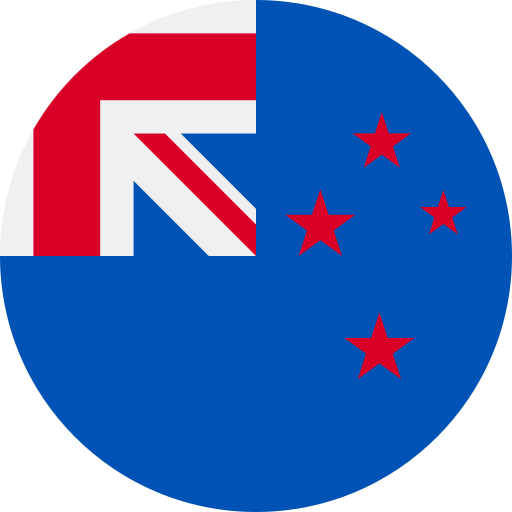Key Takeaways
- Colonial Influence on Language: The arrival of British settlers in the 19th century introduced unique vocabulary and expressions, significantly shaping New Zealand English.
- Māori Integration: The blending of Māori language with English enriched the local lexicon, incorporating culturally significant terms like „whānau” (family) and „kai” (food).
- Evolution Over Time: As New Zealand gained independence, its English dialect developed distinctive characteristics diverging from traditional British norms, influenced by diverse immigrant communities.
- Key Historical Events: Important milestones such as early European contacts, the Treaty of Waitangi, and the gold rushes contributed to both social dynamics and linguistic evolution in New Zealand.
- Contemporary Perspectives: Modern discussions around colonial history emphasize education, cultural appreciation, land rights debates, and recognition of Māori sovereignty within national identity.
- Ongoing Impact: Understanding colonial history not only informs current language use but also highlights the complex relationship between culture and identity in contemporary New Zealand society.
Have you ever wondered how colonial history shaped the English we speak in New Zealand today? The influence of colonization runs deep, affecting not just language but also culture and identity. Understanding this connection can unlock insights into the unique linguistic landscape of New Zealand English.
As you explore this fascinating topic, you’ll discover how early settlers introduced new words and phrases while merging them with indigenous Māori influences. This blend has created a rich tapestry that reflects both heritage and evolution. By delving into the nuances of colonial history in New Zealand English, you’ll gain a deeper appreciation for the language’s distinct character and its ongoing transformation.
Overview of Colonial History in New Zealand English
Colonial history significantly shaped the English language in New Zealand. The arrival of British settlers in the 19th century introduced various linguistic elements, resulting in a distinct form of English. Early settlers brought new vocabulary related to their lifestyle, agriculture, and governance, influencing everyday communication.
Interactions with Māori culture also played a crucial role. Borrowed words from Māori enriched the lexicon of New Zealand English, incorporating terms like „whānau” (family) and „kai” (food). This blending created a unique linguistic landscape that reflects both colonial influences and indigenous heritage.
The evolution continued through societal changes over time. As New Zealand moved towards greater independence, its English developed further away from British norms. It’s evident that local expressions and slang emerged, showcasing regional identity. Understanding these historical connections provides insights into how colonialism impacted not just language but also cultural identity in New Zealand.
The interplay between colonization and local culture led to the dynamic nature of New Zealand English today. It’s this rich tapestry that makes it an intriguing subject for exploration and appreciation.
Key Events in Colonial History
Colonial history significantly shaped New Zealand’s development and its English language. Key events reflect the transitions and influences that molded this unique cultural landscape.
Early European Contacts
Early European exploration began in the 17th century, with Dutch navigator Abel Tasman first encountering New Zealand in 1642. However, sustained contact started later with British missionaries and traders arriving in the late 18th century. These interactions introduced new goods and ideas, impacting Māori society while laying the groundwork for future colonization efforts.
Treaty of Waitangi
The Treaty of Waitangi, signed on February 6, 1840, marked a pivotal moment in New Zealand’s colonial history. This agreement between Māori chiefs and representatives of the British Crown aimed to establish governance while recognizing Māori rights to their land. The differing interpretations of the treaty led to significant tensions and conflicts over land ownership, sovereignty issues, and cultural preservation that continue to resonate today.
Gold Rush and Immigration
The gold rushes of the 1860s attracted thousands from around the world seeking fortune. This influx increased population diversity and significantly impacted local economies. As settlers established communities driven by mining industries, they brought various languages and cultures into New Zealand’s social fabric—further influencing its evolving English dialect through new vocabulary related to daily life and work experiences.
By examining these key events within colonial history, you can appreciate how they contributed not only to New Zealand’s socio-political landscape but also enriched its distinct form of English.
Impact on Language and Culture
Colonial history significantly shaped both the language and culture of New Zealand. The introduction of English by British settlers in the 19th century created a distinct dialect, influenced heavily by interactions with Māori culture.
Influence of Māori Language
The integration of Māori language into everyday English enriched New Zealand’s linguistic landscape. Terms like „whānau” for family and „kai” for food reflect this blend. This incorporation isn’t just about vocabulary; it’s about acknowledging cultural significance. You might hear phrases that intertwine English with Māori expressions, showcasing the respect for indigenous heritage. This influence has led to a more inclusive form of communication that embraces cultural diversity.
Development of New Zealand English
As colonization progressed, New Zealand English began to diverge from its British roots, developing unique slang and local expressions over time. The gold rushes in the 1860s invited diverse settlers who brought their own vernaculars, further enriching the dialect. You’ll notice colloquialisms specific to regions or communities that add vibrancy to conversations.
The evolution also mirrors societal changes; as New Zealand gained greater independence, its identity became clearer through language nuances. Local idioms and phrases reflect not only geographical differences but also shared experiences among Kiwis. By recognizing these linguistic shifts, you gain insight into how colonial history continues to impact contemporary life in New Zealand—both in terms of communication styles and cultural identity.
Through understanding these elements, you appreciate not just a language but also a rich tapestry woven from historical threads that connect past influences with present realities.
Contemporary Perspectives on Colonial History
Contemporary perspectives on colonial history in New Zealand reflect a complex interplay of recognition, critique, and reconciliation. Modern discussions often emphasize the importance of understanding historical context to navigate current social dynamics.
Education and Awareness
Education plays a crucial role in shaping contemporary views on colonial history. Many institutions incorporate Māori perspectives into curricula, encouraging students to explore both sides of the colonization narrative. This approach fosters an awareness of historical injustices while promoting cultural appreciation. Workshops, seminars, and community programs further enhance public knowledge about the implications of colonial practices on Māori society and identity.
Debates on Colonial Legacy
Debates surrounding the colonial legacy remain vibrant in New Zealand today. Conversations focus on land rights, reparations, and representation within government structures. Various groups advocate for recognizing Māori sovereignty as integral to national identity. Discussions often spotlight differing interpretations of historical events like the Treaty of Waitangi, illustrating ongoing tensions between indigenous rights and settler governance.
These contemporary viewpoints inform how language evolves alongside culture. The incorporation of Māori terms into everyday English signifies not only linguistic change but also a collective acknowledgment of shared heritage. By engaging with these debates, you can gain deeper insights into how New Zealand’s past continues to shape its present language landscape and societal interactions.
Conclusion
Colonial history has left an indelible mark on New Zealand English that reflects a rich tapestry of influences. As you explore this unique dialect, you’ll notice how it embodies the nation’s journey through colonization and cultural exchange. The integration of Māori terms into everyday language not only enriches communication but also honors the indigenous heritage that is central to New Zealand’s identity.
Understanding this linguistic evolution helps you grasp the complexities of contemporary discussions around colonial legacy and cultural recognition. Engaging with these insights allows for a deeper appreciation of how language shapes social dynamics and fosters connections within diverse communities. Embracing both the historical context and modern perspectives equips you to navigate the ongoing dialogues surrounding identity in New Zealand today.
Frequently Asked Questions
How did colonial history influence the English language in New Zealand?
Colonial history profoundly impacted New Zealand’s English through British settlement in the 19th century, introducing new vocabulary and expressions. Interactions with Māori culture added terms like „whānau” (family) and „kai” (food), creating a unique dialect that blends colonial and indigenous influences.
What role did the Treaty of Waitangi play in shaping language and identity?
The Treaty of Waitangi, signed in 1840, was crucial for establishing governance while acknowledging Māori rights. Its differing interpretations have led to ongoing tensions but also fostered discussions about identity, influencing how language evolves by integrating Māori perspectives into everyday usage.
How has Māori culture shaped New Zealand English?
Māori culture significantly enriched New Zealand English by incorporating indigenous terms and expressions. This blending reflects respect for Māori heritage and highlights the country’s multicultural identity, showcasing a linguistic landscape that honors both colonial influences and local traditions.
Why is understanding colonial history important for contemporary discussions?
Understanding colonial history is essential for addressing current social dynamics in New Zealand. It informs debates around land rights, reparations, and representation while promoting cultural appreciation through education that includes Māori perspectives, fostering reconciliation between communities.
What are some examples of unique slang or expressions in New Zealand English?
New Zealand English features distinctive slang such as „chilly bin” (cooler) or „jandals” (flip-flops). These terms illustrate the evolution from British roots to a more localized form of English influenced by both colonization and interactions with Māori culture.







